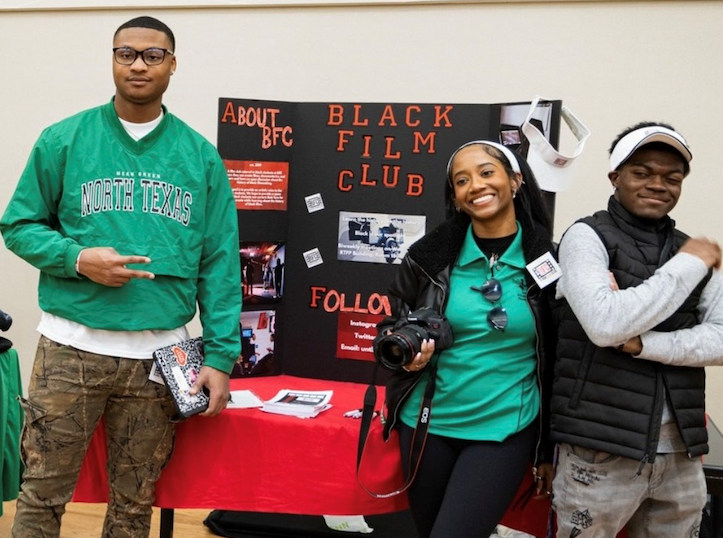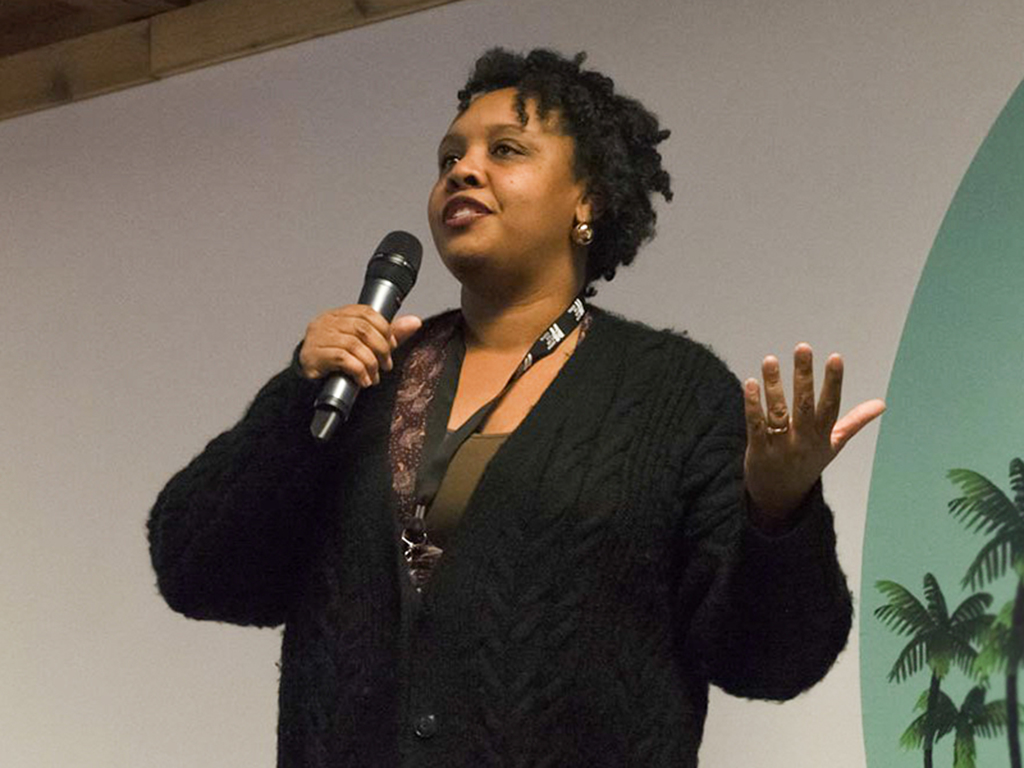Thursday, February 8, 2024
 DENTON (UNT), Texas — At the intersection of academia and artistic expression, the
plays a role in fostering Black storytellers — weaving together narratives of the
past, present and future in film.
DENTON (UNT), Texas — At the intersection of academia and artistic expression, the
plays a role in fostering Black storytellers — weaving together narratives of the
past, present and future in film.
Assistant Professor Christopher Todd, a historian of American slavery, uses documentary films in his courses to cover early American history and the onset of capitalism in the Americas, Europe and Africa.
“Historians tell stories bounded by facts, but imaginative storytelling through film can teach and tell truths that go beyond the facts,” Todd said. “Film is an important medium for telling a wide range of stories, and it is extremely impactful and aids in the discussion of both personal experiences and narratives from the past.”
Film serves as a tool for documenting and presenting Black history, capturing a range of narratives and contributing to a comprehensive understanding of the past. Professor Todd Moye not only directs the but also incorporates documentaries into his classes on U.S. history and the Civil Rights Movement.
“As a historian, I love the idea of using film to tell forgotten or perhaps overlooked stories,” Moye said.
Established in 2019, UNT’s Black Film Club (BFC) provides a platform for students interested in creating films and documentaries. The club also facilitates discussions of the history of Black filmmaking and advocates for Black voices in the film industry.
BFC President Keylen Davis said he joined the club to be “part of an organization that’s making a difference,” such as volunteering at Denton Black Film Festival (DBFF) events.
“It’s always a pleasure to come together with like-minded people in the film industry who are trying to create opportunities while doing something they love,” said Davis, a UNT senior studying broadcast media. “I hope to one day be in the position where I can come back to UNT to mentor and help underclassmen studying television and film.”
Marking its 10th anniversary, the DBFF reflects UNT alumni Harry (’79 M.B.A.) and Linda Eaddy’s (’72, ’82 M.B.A.) commitment to shaping and sharing Black culture. Since 2015, the festival — under their guidance — has evolved into a celebrated annual event contributing to the narrative of Black storytelling.
“If a picture is worth a thousand words, then film is worth a million,” said Harry Eaddy, who co-founded DBFF with his wife, Linda. "In our visually driven society, the impactful combination of presenting images and capturing the surrounding environment holds tremendous power in narrating untold stories."
 The film festival has evolved to incorporate a myriad of events, from workshops, comedy
shows, and live music to the addition of an art exhibition at this year. Lauren Kelley’s afro-futuristic exhibition “Meandering Hemispheres” recognizes
the shift happening in museums across the Western world, as they reevaluate their
historical collections by returning African art objects that were taken more than
120 years ago.
The film festival has evolved to incorporate a myriad of events, from workshops, comedy
shows, and live music to the addition of an art exhibition at this year. Lauren Kelley’s afro-futuristic exhibition “Meandering Hemispheres” recognizes
the shift happening in museums across the Western world, as they reevaluate their
historical collections by returning African art objects that were taken more than
120 years ago.
Black History Month provides an opportunity to explore the impact of African and Black American heritage on a variety of arts, including visual expressions. UNT alumni like the Eaddys and members of BFC share a common goal in shaping the future of Black film.
Jayla Jackson, a UNT junior majoring in , serves as the BFC vice president with a mission to inspire the next generation of Black actors, directors and producers. During Black History Month, she and fellow members plan to visit local middle schools to discuss the importance of Black representation in film with the students.
“I hope to one day be a filmmaker that new students can speak comfortably with. I wanted to find a community of other Black student filmmakers, which is why I joined the BFC,” Jackson said. “Stories from young student voices have yet to be told, and we wish to change that.”
UNT News Service
News_Service@unt.edu
(940) 565-2108
From – through film at UNT